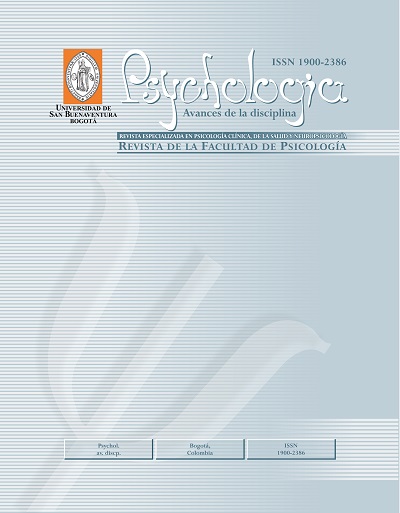This journal provides open, immediate access to its contents, based on the principle that offering the public free access to research helps to promote a higher global exchange of knowledge.
As such, all journal articles are published under a Creative Commons Attribution-NonCommercial-ShareAlike 4.0 International License (CC BY-NC-SA), by which commercial use of the original work or its possible derived works is not allowed, and the distribution thereof must be done with the same license elements regulating the original work.
http://creativecommons.org/licenses/by-nc-sa/4.0/
Abstract
The study of adolescence has highlighted the vulnerability of the process associated with variables such as the resilient disposition, present in those resources that can make a difference for the sustenance of well-being or its absence. Of these resources, the social support that adolescents perceive of their environment stands out. The objective of the research is to establish the relationship between perceived social support and resilient disposition, and compare them according to the sex and age of a sample of Paraguayan adolescents attending school. A comparative and correlational design is carried out, with 1334 school-age adolescents aged 12 to 18 (ME = 14.99, SD = 1.66), 725 women and 609 men. The instruments used were the Sociodemographic Certificate for Adolescents and their Families, the Scale of Appreciation of Social Support -EAAS de Martínez (2004) and the Inventory of Resilience IRES (Gaxiola Romero, Frias Armenta, Hurtado Abril, Salcido Noriega, Figueroa Franco, 2011). The results indicate that there is no correlation between social support and resilience, probably due to individual characteristics that generate resilient dispositions in adolescents. Regarding the scales of social support, there are differences in the social support of friends
and others, mainly in males. In women, significant differences are observed in the scales of resilience, in the sense of humor, self-efficacy and empathy. Differences were found in the ages of the adolescents, the age group of 16 to 18 years obtained a higher score in religiosity and in social, family, friends and other support. It is suggested to study simultaneously more variables related to social support and the resilient disposition, since many of the preventive public policies of attention to positive health reinforces its importance in adolescence.

 Perfil Google Scholar
Perfil Google Scholar




















